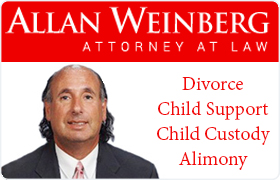Port Monmouth Adoption Lawyer, New Jersey
Sponsored Law Firm
-
 x
x

Click For More Info:
-
Allan Weinberg, Esq.
100 Craig Road, Suite 102, Manalapan, NJ 07726 » view mapDivorce, Child Support, Child Support & more Accessible & Dedicated to Your Best Result
The firm makes sure their clients receive high-quality legal services, and the support and resources they deserve. Allan is constantly available to best assist his clients.
800-715-9811  Allan Weinberg Manalapan, NJ
Allan Weinberg Manalapan, NJAttorney At Law - NJ, 1984
Rutgers Camden SOL, J.D. - 1984
 Testimonials
TestimonialsHear what our clients are saying!
 Contact UsEmail or Call 24/7
Contact UsEmail or Call 24/7Allan is constantly available for your assistance
James Joseph Addonizio
Alcoholic Beverages, Alimony & Spousal Support, Adoption, Administrative Law
Status: In Good Standing Licensed: 46 Years
Marc B. Schram
Alimony & Spousal Support, Adoption, Administrative Law, Animal Bite, Mass Torts
Status: In Good Standing Licensed: 41 Years
Lawrence D. Kantor
Dispute Resolution, Alimony & Spousal Support, Adoption, Animal Bite
Status: In Good Standing Licensed: 59 Years
Gary E. Linderoth
Dispute Resolution, Alcoholic Beverages, Alimony & Spousal Support, Adoption
Status: In Good Standing Licensed: 43 Years


 Allan Weinberg Manalapan, NJ
Allan Weinberg Manalapan, NJ Testimonials
Testimonials Contact UsEmail or Call 24/7
Contact UsEmail or Call 24/7
